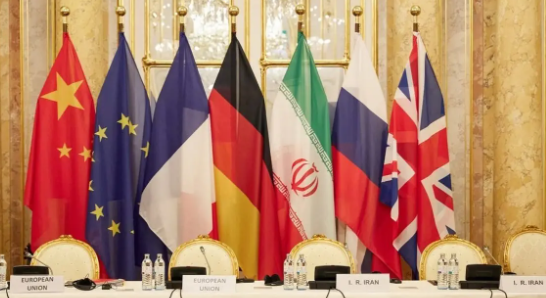An European official revealed today, Tuesday, that he does not anticipate difficulty in convincing EU member states to maintain the ballistic missile sanctions imposed on Iran, which are set to expire in October. The official, who requested anonymity, expressed that there is a timely opportunity by the end of 2023 to attempt negotiations for a nuclear agreement with Iran to de-escalate tensions.
The official stated in Washington, "We may have a small chance to try to resume talks with them about returning to the Joint Comprehensive Plan of Action, or at least reach an agreement to de-escalate before the end of the year." He was referring to the 2015 nuclear deal with Iran, officially known as the Joint Comprehensive Plan of Action, which aimed to restrict Tehran's nuclear program and make it more difficult for it to obtain fissile material needed to create a nuclear bomb, in exchange for a reduction of economic sanctions.
Sources told Reuters in June that European diplomats informed Iran of their intention to maintain the EU sanctions concerning ballistic missiles, which are scheduled to expire in October under the nuclear agreement. This step, they noted, could provoke Iran's anger. The sources also mentioned that there are three reasons to keep the sanctions: the use of Iranian drones by Russia in the Ukraine war, the potential transfer of ballistic missiles from Iran to Russia, and denying Iran the benefits of the nuclear deal due to its violations, although this occurred after the United States withdrew from it.
Maintaining EU sanctions would reflect the West's desire to prevent Iran from developing nuclear weapons and block its pathways to achieve this, despite the collapse of the 2015 nuclear agreement, from which former U.S. President Donald Trump withdrew in 2018.
In response to a question about whether Britain, France, and Germany, the parties to the 2015 agreement, have convinced the other EU members to maintain the missile sanctions, the European official said, "It has almost been agreed. I do not expect difficulties."
As a result of Trump's withdrawal from the agreement and President Joe Biden’s failure to revive it, American estimates suggest that Iran could produce the fissile material necessary to manufacture one bomb in approximately 12 days, compared to a whole year when the agreement was in effect.
Relations between Iran and the West have deteriorated over the past year, prompting Washington and its allies to seek ways to ease tensions, which would likely require imposing some restrictions on Iran's nuclear activities.




